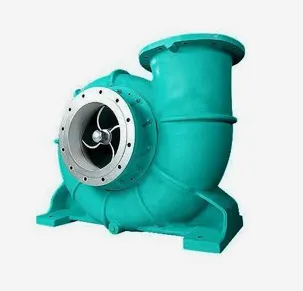English
- Afrikaans
- Albanian
- Amharic
- Arabic
- Armenian
- Azerbaijani
- Basque
- Belarusian
- Bengali
- Bosnian
- Bulgarian
- Catalan
- Cebuano
- Corsican
- Croatian
- Czech
- Danish
- Dutch
- English
- Esperanto
- Estonian
- Finnish
- French
- Frisian
- Galician
- Georgian
- German
- Greek
- Gujarati
- Haitian Creole
- hausa
- hawaiian
- Hebrew
- Hindi
- Miao
- Hungarian
- Icelandic
- igbo
- Indonesian
- irish
- Italian
- Japanese
- Javanese
- Kannada
- kazakh
- Khmer
- Rwandese
- Korean
- Kurdish
- Kyrgyz
- Lao
- Latin
- Latvian
- Lithuanian
- Luxembourgish
- Macedonian
- Malgashi
- Malay
- Malayalam
- Maltese
- Maori
- Marathi
- Mongolian
- Myanmar
- Nepali
- Norwegian
- Norwegian
- Occitan
- Pashto
- Persian
- Polish
- Portuguese
- Punjabi
- Romanian
- Russian
- Samoan
- Scottish Gaelic
- Serbian
- Sesotho
- Shona
- Sindhi
- Sinhala
- Slovak
- Slovenian
- Somali
- Spanish
- Sundanese
- Swahili
- Swedish
- Tagalog
- Tajik
- Tamil
- Tatar
- Telugu
- Thai
- Turkish
- Turkmen
- Ukrainian
- Urdu
- Uighur
- Uzbek
- Vietnamese
- Welsh
- Bantu
- Yiddish
- Yoruba
- Zulu
Telephone: +86 13120555503
Email: frank@cypump.com
Nov . 17, 2024 09:33 Back to list
Exploring Efficient Solutions for Clearwater Irrigation Systems and Water Management Strategies
Clearwater Irrigation Ensuring Sustainable Water Management for Agriculture
Water is a vital resource for agriculture, and efficient irrigation systems play a crucial role in optimizing water usage. Clearwater Irrigation is an exemplary model that focuses on sustainable water management practices to enhance agricultural productivity while safeguarding the environment.
Understanding Clearwater Irrigation
Clearwater Irrigation refers not only to the literal supply of clean water for farming but also embodies a comprehensive approach to irrigation management. This system emphasizes the importance of using high-quality water sources, minimizing wastage, and ensuring that the water reaches the crops in the most efficient manner. The goal of Clearwater Irrigation is to balance the need for irrigation with environmental sustainability, making it essential for modern farming practices.
The Importance of Sustainable Water Management
In recent years, the agricultural sector has faced numerous challenges due to climate change, water scarcity, and increasing demand for food. Traditional irrigation methods often lead to significant water loss due to evaporation, runoff, and inefficient distribution. Clearwater Irrigation addresses these challenges by implementing precision agriculture techniques that enhance water conservation.
By utilizing methods such as drip irrigation, rainwater harvesting, and soil moisture sensors, Clearwater Irrigation ensures that water is delivered directly to the plant roots where it is needed the most. This not only reduces the amount of water required but also improves crop yields and quality.
Benefits of Clearwater Irrigation
1. Water Conservation One of the primary advantages of Clearwater Irrigation is its ability to conserve water. Efficient irrigation systems can reduce water usage by up to 50% compared to traditional methods. This conservation is critical, especially in regions where water resources are becoming increasingly limited.
2. Enhanced Crop Productivity When crops receive the right amount of water at the right time, they are more likely to flourish. Clearwater Irrigation contributes to higher crop yields and quality, allowing farmers to produce more food with less water.
3. Cost-Effectiveness While initial investments in advanced irrigation systems might be higher, the long-term savings on water bills and increased crop production can lead to significant financial benefits for farmers. Furthermore, efficient water use can reduce the costs associated with water transport and infrastructure.
clearwater irrigation

4. Environmental Protection Clearwater Irrigation practices can minimize the runoff of fertilizers and pesticides into nearby waterways, protecting local ecosystems and improving water quality. By promoting responsible water management, these practices contribute to the overall health of the environment.
5. Adaptability to Climate Change With changing weather patterns, farmers need adaptable irrigation solutions. Clearwater Irrigation systems can be designed to accommodate these changes, ensuring that crops receive adequate water even during droughts or heavy rainfall.
Implementing Clearwater Irrigation Practices
To effectively implement Clearwater Irrigation, farmers can take several steps
- Education and Training Farmers should be educated on the importance of efficient water use and the various practices available to them. Workshops and training sessions can help in this regard.
- Investment in Technology Embracing technology such as soil moisture sensors, automated irrigation systems, and weather forecasting tools can help farmers optimize their water usage.
- Collaboration and Support Farmers can benefit from collaborating with agricultural organizations, government agencies, and environmental groups. These partnerships can lead to better access to resources and technical expertise.
- Continuous Monitoring Regularly monitoring water usage and crop health is crucial. This helps in making data-driven decisions that further enhance irrigation efficiency.
Conclusion
Clearwater Irrigation represents a pivotal shift towards more sustainable and efficient agricultural practices. By prioritizing water conservation and optimizing irrigation techniques, farmers can not only boost productivity but also contribute to a healthier planet. In a world increasingly threatened by water scarcity and environmental degradation, adopting Clearwater Irrigation practices is not just beneficial—it is essential for the future of agriculture. Embracing this approach will ensure that farmers can continue to feed a growing population while preserving vital water resources for generations to come.
-
Heavy-Duty Mining Sludge Pumps - Wear-Resistant Slurry Handling
NewsAug.02,2025
-
Horizontal Split Case Pump with GPT-4 Turbo | High Efficiency
NewsAug.01,2025
-
ISG Series Pipeline Pump - Chi Yuan Pumps | High Efficiency, Durable Design
NewsAug.01,2025
-
Advanced Flue Gas Desulfurization Pump with GPT-4 Turbo | Durable & Efficient
NewsJul.31,2025
-
ISG Series Vertical Pipeline Pump - Chi Yuan Pumps | Advanced Hydraulic Design&Durable Construction
NewsJul.31,2025
-
ISG Series Vertical Pipeline Pump - Chi Yuan Pumps | Energy Efficient & Low Noise
NewsJul.31,2025










